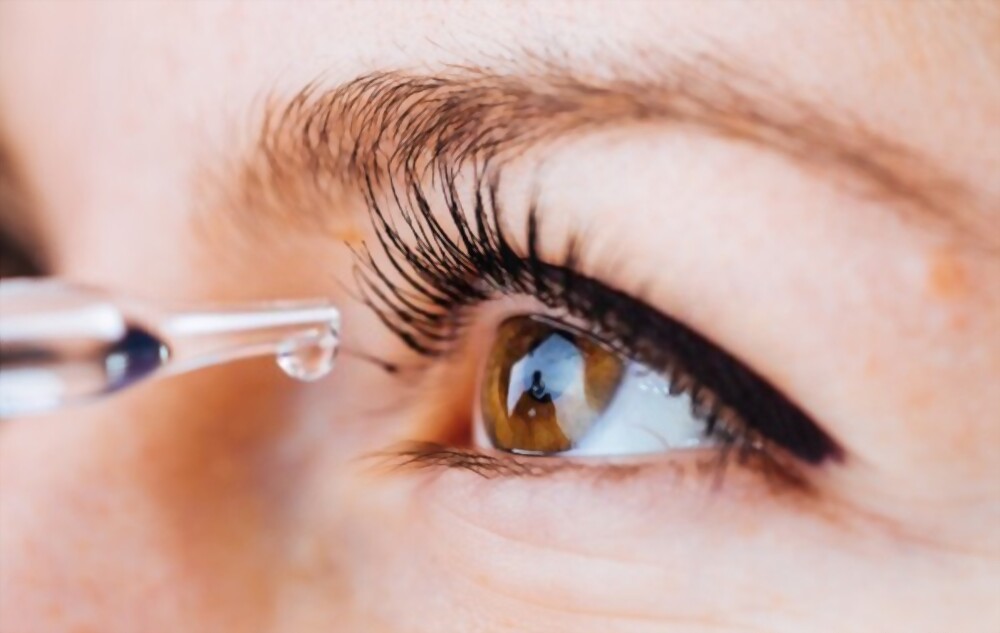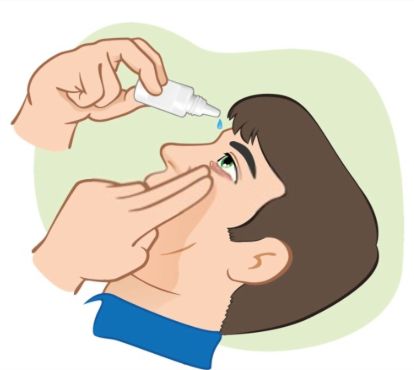First disclaimer! Do not use expired eyed drops. That is why the FDA requires manufacturers to indicate expiry dates on the bottles.
The same way there is no universal expiration date for different types of eye drops, I could not pinpoint the exact time when eye drops expire. It is typical to state the expiration date as 1-2 years from the date of manufacture. However, even the Food and Drug Administration acknowledges that this exact shelf life can be arbitrary.
In this article, I explain when eye drops go bad, why they do so, and why you should not use expired one.
Eye drops are used for treating different types of eye conditions.
- Artificial tears – for dry eyes
- Allergy drops – for relief from allergens
- Anti-redness drops – also known as decongestants help to clear redness out of the eye.
In this article, I will go through the expiration of some common over the counter eye drops including the following:
- GenTeal Gel
- Systane Ultra Lubricant
- Refresh Tears Lubricant
- Visine All Day Comfort
- Sooth Lubricant
Do Eye Drops Expire?
Yes, eye drops expire approximately 1-2 years after the date of manufacture. However, depending of the type, once opened, some eye drops will go bad after 28 days while others can last 3 months. Never an eye drops after their expiry date.
Fortunately, each type of eye drop always comes with an expiration date indicated. You should never use eye drops after their expiry date or 90 days after opening.
Preservatives are added to eye drops to ensure that they remain sterile until the end of their shelf life.
Here’s everything you need to know about eye drops, including how long they last and why they expire.
Does Visine Expire?
Does Visine expire? Yes, according to VISINE.com, Visine eye drops expire. If it is unopened, Visine will go bad after 2 years. Your doctor will indicate the expiration date on your eye drop once opened. Avoid using Visine that has passed its shelf life.
Some doctors will recommend using the eye drop for not more than 72 hours after it is opened. After the 3rd or 4th day, it should be discarded. You can get a new medication if your eye condition persists.
Why is expired Visine is dangerous? All expired eye drops including Visine easily grow bacteria and other microorganisms. If you use Visine that has gone bad, you could develop a really bad eye infection.
Why do Ear Drops Expire?
Each individual eye drop will have a distinct expiration date, and the chemicals will have an impact on how long it will be effective.
How do preservatives influence expiration of eye drops? After opening, however, the preservative will often only ensure that the drops are safe for the eyes for a total of between 28 and 90 days before they need to be replaced. Following this, using the eye drops may result in substantial harm to the eye due to the introduction of bacteria into the eye.
The substances themselves will also be less effective and may even be harmful in some cases. When using eye drops, keep a record of the date they were first opened and do not use them beyond 28 days. When it comes to eye drops, some now have longer expiration dates after being opened; always check the packet before using.
For example, the active chemical constituents of glycerin (the lubricant) and naphazoline hydrochloride in Clear Eyes Redness Relief eye drops eventually degrade, making them less effective and safe over the long term.
According to Jaclyn Haugsdal, MD, a vision and eye care expert at the University of Iowa Hospitals & Clinics, these chemicals have the ability to breakdown and transform into potentially hazardous substances after a lengthy period.
Furthermore, many eye drops contain preservatives, which assist them to last longer and prevent the spread of germs and bacteria. According to the American Academy of Ophthalmology, the majority of eye drops containing preservatives will often expire at least one year after they are manufactured (AAO).

It is typically considered safe and effective to continue using these eye drops until the expiration date has passed. The American Academy of Ophthalmology (AAO) advises that if you’ve already opened your eye drops, they may have a substantially shorter shelf life. Therefore, you should discard them three months or 90 days after opening – even if they’re still inside the expiration date.
The reason for this is that after opening eye drops, the exposure to oxygen can hasten the degradation of chemical constituents, resulting in a weakening of the final solution.
Eye drops without preservatives (which are typically packaged in single-use vials) should be discarded 24 hours after being opened. These are typically intended for one-time use only.
Using Eye Drops After Their Expiration Date
It is not recommended to use eye drops over their expiration date when taking pharmaceuticals, or in this case, eye drops. Using eye drops after they have passed their expiration date can cause discomfort, inflammation, and possibly an infection in the eyes. Over time, the chemical composition of eye drops may alter, and their effectiveness may be diminished. It is critical to dispose of drops at the appropriate time to guarantee that they are not used again and to keep your eyes safe.
Using an old, used dropper in close proximity to your eyes increases the danger of transmitting undesired bacteria to your eyes and causing them to spread further. This can result in more irritation as well as a significantly increased risk of infection. The danger that comes with using expired eye drops is not worth the risk to your vision and your health.
How Long After Opening is it Safe to Use a Bottle of Eye Drops?
After opening a bottle of eye drops, you should use it within 30 days. Eye drops, on the other hand, once opened and used, run the risk of becoming contaminated with the usual germs that live on the upper and lower eyelids. When putting the drops in the babies’ eyes, use extreme caution because it is easy to contaminate the tip of the bottle with a simple touch to the eyelids.
When putting the drops in the babies’ eyes, use extreme caution because it is easy to contaminate the tip of the bottle with a simple touch to the babies’ eyelids. All eye drops are labeled with an expiration date, which relates to the shelf life of a drop that has not been used or opened.
The majority of eye drops bottles contain preservatives that, while effective, do not completely prevent bacterial growth. The older the bottle, the greater the likelihood that it has been contaminated, and the longer the period of time during which the germs can proliferate. After three months, any unsealed bottle of eye drops should be thrown away according to standard procedure.
A bottle of drops that has not yet been opened can be used until the date on the label indicates that it has reached its expiration date, however once a bottle has been opened, it should be thrown away after three (3) months, regardless of whether the expiration date is 12 months away.
Is it Safe to Use Expired Eye Drops?
No, it is not safe to use expired eye drops because after expiry, they no longer guarantee efficacy. Furthermore, using them increases your risk of bacterial infection in the eye. That is why eye and vision experts warn against using expired eye drops.
“The expiration date indicates when the eye drops are no longer guaranteed to be effective or sterile,” explains Vivian Shibayama, OD, an eye and vision care expert at UCLA Health and a member of the American Optometric Association.
“I wouldn’t take expired pills, whether they’ve been opened or not,” Shibayama explains.
The preservatives that keep eye drops sterile have degraded over time, and bacteria could contaminate the container once it is opened, causing eye infections, according to her research findings.
Your eyes could be irritated as a result of the chemical breakdown of other components as well. According to Haugsdal, other concerns of using expired eye drops could comprise redness and blurred vision as a result of the irritation caused by the broken down chemicals. For these reasons, she does not recommend using expired eye drops.
When possible, avoid storing eye drops in a car, a pocket, or in direct sunlight, as high temperatures and light can cause chemical compounds in the medications to deteriorate. If your eye drops get hazy or change color in any way, this is a good indication that they are no longer effective.
According to the American Academy of Ophthalmology, the general advice for eye drops is as follows:
- Discard eye drops three exactly 3 months after opening since they may have been contaminated with bacteria.
- If the drug has not been opened, use it up until the expiration date and then discard it.
Reasons You Should Never Use Expired Eye Drops
The following are five reasons why you should never use expired eye drops.
1. It is possible that expired eye drops have lost their effectiveness
Your eye drops are labeled with expiration dates to guarantee that they are still effective and safe to use.
According to the UFS, “Preservatives in Eye Drops can only assure that the lubricant is sterile for 28 days after it has been opened.”
According to Dr. Anne Sumers, an opened bottle of expired Eye Drops can become a breeding ground for bacteria.
2. Eye drops have will have changed color as well as their chemical composition
When Eye Drops are opened or when they get close to their expiration date, air begins to break down the active and inert components contained within.
Swelling, redness, inflammation and irritation of the eyes may occur if you use expired eye drops because they may contain unstable components.
Dr. Harris provides us with the following vital tips to assist determine if your Eye Drops have been contaminated.
“If your Eye Drops have not yet expired, but show color change or become foggy, throw them away,” he advises.
3. There is a high risk of contamination in eye drops that have expired
According to Dr. Anne Sumers MD, “Eye Drops, once opened and used, run the danger of becoming contaminated with the usual bacteria that dwell on your eyelids.” However, she adds, “Most bottles of eye drops contain preservatives that prevent bacterial growth.”
4. Using expired eye drops can put you at risk for getting an infection
Dr. Summers advises against sharing eye drops in order to avoid contracting an eye infection: “Eye infections can be transferred this way.”
5. Bacteria might have grown on the dropper, putting your eyes at risk
On the subject of Bacterial Growth, the UFS advises that using the drops particularly beyond the 28th day of opening can cause substantial damage to the eye because bacteria may have been introduced into the environment.
Michele Dukinfield, RN, makes the following observation: “The second the dropper’s surface comes into contact with another surface, it picks up microorganisms.” And one of the most common ways to get an infection is by transporting them into the eye.”
If the tip of your dropper has come into contact with an unclean surface, throw it away right away.
The following are three key takeaways from this article:
- Unopened eye drops will only remain effective until they reach the expiration date on the package.
- Eye drops that have been opened have a shelf life of only 28 days.
- Contamination and bacterial exposure are potential risks associated with expired eye drops.
